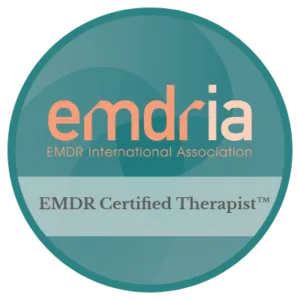Health care work was challenging before 2020. But in the aftermath of the COVID-19 pandemic, health care workers are facing record levels of burnout, anxiety and depression, according to a study released by the CDC at the end of 2023.
The study surveyed American health care workers in 2018 and 2022 and found significant increases in:
- The number of poor mental health days
- Feelings of burnout
- Reports of depression and anxiety
What’s more, incidents of health care workers being harassed more than doubled in the same period, leading to even higher levels of distress. According to a Colorado Hospital Association report, health care workers nationwide are five times more likely to be hurt on the job due to violence compared to workers in other industries, and a U.S. nurse is assaulted every 30 minutes.
This blog will unpack some of the unique stressors health care professionals face, explore how therapies like EMDR can start to address rising levels of anxiety and depression in this population, and offer resources to get started.
Why Health Care Professionals Are Hurting
By their nature, health care settings can be stressful places to work. Long, irregular hours and high-pressure situations often come standard in the field. This can lead to burnout, fatigue and poor work-life balance.
However, what sets health care apart from many other stressful work environments is the consistent exposure to human suffering and life-and-death situations. Health care professionals are not just dealing with financial pressures or tight deadlines; they are often the last line of defense in saving lives. For many, the COVID-19 pandemic added yet another layer of uncertainty, fear and trauma.
Even amid record levels of stress, according to a Mental Health America survey, 39% of healthcare workers report they do not have adequate emotional support.
This combination of high stakes, emotional and physical labor, and a weak support system creates a unique set of stressors that can deeply affect mental well-being.
Signs of Mental Health Issues in Health Care Professionals
Health care professionals often have a “get it done” mentality. They may put aside their health and safety to ensure a good patient outcome or experience. But with burnout, anxiety and depression on the rise, health care workers can’t afford to ignore their mental health, both for their own safety and the well-being of those in their care.
The CDC outlines the following signs of stress in health care workers:
- Feeling irritated, angry or in denial
- Feeling uncertain, nervous or anxious
- Feeling helpless or powerless
- Lacking motivation
- Feeling tired, overwhelmed or burned out
- Feeling sad or depressed
- Having trouble sleeping
- Having trouble concentrating
It’s important to recognize these signs and symptoms, and act on behalf of yourself or loved ones.
According to the CDC, “Many health care workers place the well-being of others before self. On the surface, this dedication to patients may seem admirable. However, it can ultimately be harmful if it delays or prevents workers from getting the help they need for their health and well-being.”
Finding Solutions: Individual and Organizational
Addressing mental health issues among health care professionals requires a multifaceted approach. Some of the responsibility lies with health care organizations and workplaces. Health workers reported fewer mental health issues when they said they worked in environments where they trusted their managers, were included in decision-making and had supportive supervisors.
Unfortunately, you may not have much control over your workplace environment. But that doesn’t mean you’re stuck feeling depressed, anxious and burned out. Individuals can start to take control of their own mental health in the following ways:
Self-care. Incorporating self-care practices into your daily routine can be a powerful tool for stress management. Self-care can be anything that helps you feel better — from exercise to getting a good night’s sleep to engaging in your favorite hobbies.
Mindfulness and meditation. Mindfulness practices like silent retreats, meditation body scans, walking and yoga have been shown to improve stress levels among health care workers.
Peer support. It’s important to talk openly about the stresses of your job. Trained peer supporters can understand the job’s daily challenges and offer productive solutions. The National Alliance on Mental Illness (NAMI) offers a list of peer support resources for doctors, nurses and other health care workers.
Setting boundaries. Learning to set boundaries around your work is crucial for avoiding burnout and protecting your mental well-being. This could mean saying no to extra shifts, taking scheduled breaks, and drawing clear lines between work and personal life.
Advocacy for workplace change. Individual efforts are important, but stress and burnout are systemic health care problems. Advocating for changes to the system not only improves your workplace but can offer a sense of empowerment and control. You may choose to participate on committees, offer feedback to management, or propose workplace changes that support mental health.
Professional Therapy for Health Care Workers
Therapy is a safe and supportive environment to help you work through both personal and professional issues, including occupational trauma common among health care workers. A qualified therapist can provide personalized support and strategies to take control of your life and feel better.
Therapy options include:
Talk therapy. Psychotherapy, commonly called talk therapy, involves working with a therapist “to help a person identify and change troubling emotions, thoughts, and behaviors,” according to the NIH.
Cognitive behavioral therapy (CBT). CBT is a form of talk therapy that focuses on problem-solving and skill-building. Your therapist will help you identify negative thought patterns or beliefs and help you come up with coping skills to address them.
Eye movement desensitization and reprocessing (EMDR). EMDR is a type of psychotherapy that helps people heal from emotional distress caused by traumatic life experiences. It is used to treat various conditions, including trauma, anxiety, depression and addictions. EMDR can be effective for past traumas and to help deal with ongoing traumatic situations.
A pandemic-era study of health care professionals in Italy found that “working with EMDR in emergencies not only promotes faster recovery but also offers protective factors for re-exposure to other stressful events.”
Combating Stigma Around Therapy for Health Care Professionals
The first hurdle is dealing with individual reluctance to seek help. According to the CDC, “There is a strong and historical stigma related to healthcare workers seeking care for mental health concerns or substance use disorders.”
This may stem from the “just get it done” nature of the job or a general reluctance to seek out care. Whatever the reason, the stigma around seeking professional care for mental health means many in the profession are not getting the care they desperately need.
The first step is finding support. NAMI offers the following list of resources to help health care professionals connect with qualified, confidential therapists.
First responders such as EMTs and 911 operators can reach out to Colorado-based First Responder Trauma Counselors. The support system was established by a husband and wife team looking to provide emergency and ongoing support for responders’ mental health.
You may also seek recommendations from your friends and family; get referrals from a social worker; or search online directories for therapy recommendations. For men in the Denver area, try our therapist match survey to be paired with a therapist. We’re here to help and support you every step of the way.














